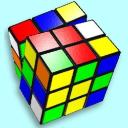Yahoo 知識+ 將於 2021 年 5 月 4 日 (美國東岸時間) 停止服務,而 Yahoo 知識+ 網站現已轉為僅限瀏覽模式。其他 Yahoo 資產或服務,或你的 Yahoo 帳戶將不會有任何變更。你可以在此服務中心網頁進一步了解 Yahoo 知識+ 停止服務的事宜,以及了解如何下載你的資料。
Honestly, which system do you prefer, Metric or US Customary system?
An honest question for those of you that know, and use, both systems.
Which system do you prefer?
And, which do you actually use at:
Work?
Home?
And please feel free to include any reasons or explanations that you feel are pertinent
8 個解答
- PuzzlingLv 74 年前最愛解答
We were told growing up that we should expect to be converted to metric by the time we were adults, so we should learn metric from the start. But did that happen? No, we decided, along with Liberia to be the only countries in the world stuck on these ridiculous "Imperial" measurements.
Dealing with measurements in feet, inches and then fractions is a pain. It's really fun to try to measure a wall as 9' 10 7/64" and then try to figure out how to divide that into thirds, for example. But if I measure it as 3 meters, it's really easy!
It's a similar mess with baking and quarts, pints, cups, ounces, tablespoons, teaspoons, etc.
The only people that really like the current system are just ones that have gotten used to it and don't want to have to switch to a new mindset. I already know that it is 3 miles to a certain location, but now you want me to think that is about 5 km? Or that I'm driving at 88 km/h, am I speeding on the freeway where I used to go 55 mph? Or what is my weight in kilograms, or my height in cm? Do I need to get my winter coat if it is 27°C? It sounds pretty cold, right? That's where there's a sticking point and one of the reasons we haven't changed.
For construction, I know that studs in the wall are 16" on center and that I need to buy some 2" x 4" boards and some 4' x 8' plywood. but I wouldn't know what to do if I had to work in metric. In the office I need to buy 8½" x 11" paper for the printer and weigh things in ounces for mailing. At the supermarket I buy lots of things (meats, cheeses, flour, etc.) by the pound. I'd be confused if I had to think in other units.
USA! USA! USA!
(Please, can we go to metric now? I'll buy you a 2-liter soda, if you say yes.)
- 4 年前
The metric system is easier to remember since it goes by the powers of ten. The US customary system is ok but sometimes I find it frustrating not remembering how many yards are in a mile.
- ?Lv 74 年前
I prefer the metric system. Unit conversions are generally a no-brainer.
At work, I use a mix. For problems in electrical engineering, the metric system generally makes the math much simpler. For problems in mechanical engineering, measurements often need to be expressed in US customary units, so using that system is generally preferred over making conversions back and forth.
At home, I also use a mix. All my kitchen measuring devices are marked in US customary units (but many are also marked in metric units). Recipes are generally in US units.
For personal use (not communicating with anyone else), I often use metric measurements, as the nearest millimeter is usually close enough and is easily read from a tape measure or ruler. I keep a 3 m/10 ft tape measure for general purpose measuring, and all my rulers have both inches and centimeters.
When we visit Canada, we have to use the alternate dial on the car's speedometer (km/h), and there is some translation involved for distances. However, it is just as easy to figure time for 250 km at 100 km/h as it is for 150 mi at 60 mi/h. (2.5 h vs. 150 min = 2.5 h) I find it interesting that many major streets are laid out on a 1 mile grid, even though the metric system is the country's standard. There is some adjustment required for translating temperatures: I have not recalibrated my thinking in that area.
- derframLv 74 年前
For scientific uses, metric is the way to go. For everyday use, the US customary system is just fine and comfortable for most people.
When they put 10 hours in a day, (and 100 minutes in an hour and 100 sec in a minute) and make a circle have 100°, then we can go totally metric.
- 4 年前
I'm more comfortable with the US measurements, because that's what I use more often. However, I'm not opposed to metric and I am able to convert readily between the two when the need arises. I truly believe that we'll be using mostly metric within the next 20 to 30 years here in the States. Aside from a few holdouts, metric is being used more and more, especially in mechanical and industrial operations. Have you tried to work on a car that was made in the past 10 years? The newer it is, the more metric hardware it has on it.
So while I'm more comfortable with the US system, I'd prefer the metric system. It's easier to do conversions, the standards for the measurements are based off of natural laws and constants (as opposed to some person's preferences), and it's far more universal. Also, I'm going to enjoy just having half of the sockets and wrenches that I have right now.
- ?Lv 74 年前
METRIC SYSTEM.
(1) It's a more logical system of measurements
(2) It's simpler and easier to learn
(2) It's easier to remember and thus, much easier to use
- nineteenthlyLv 74 年前
Metric is streets ahead and way easier to use. However, I think it should be replaced by a duodecimal system based on similar principles (and we should also stop counting in base 10 of course).




